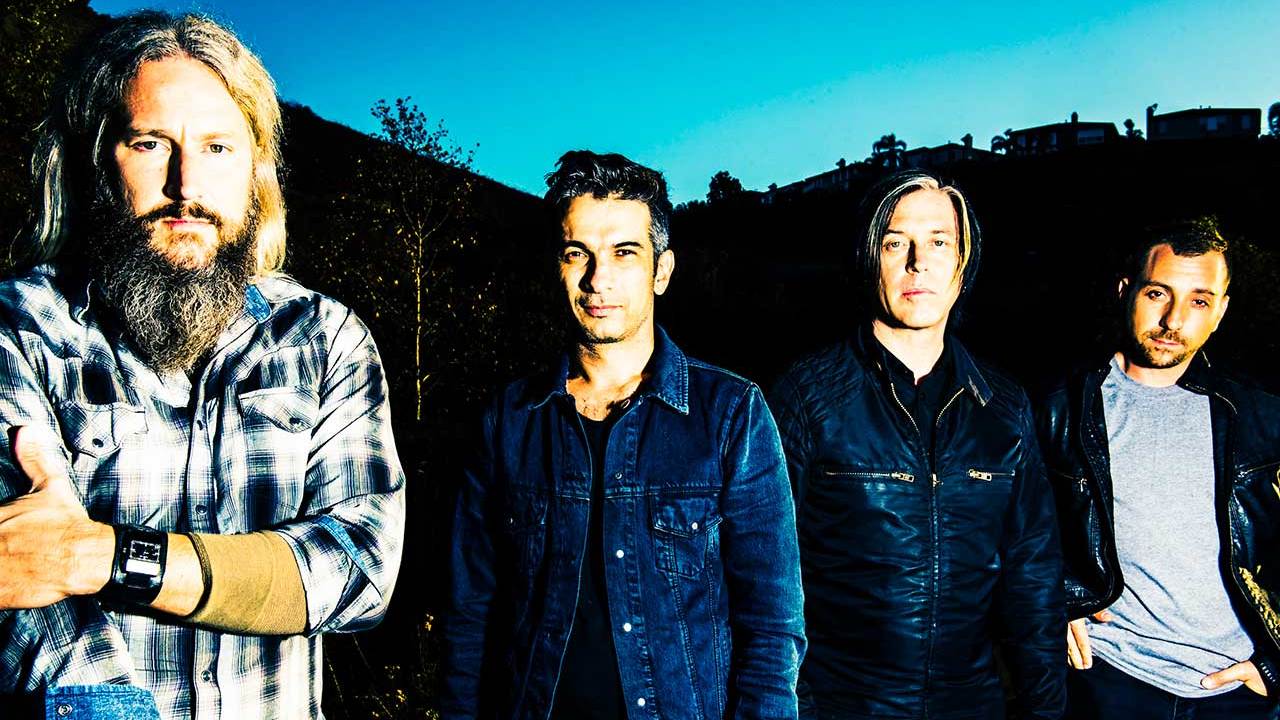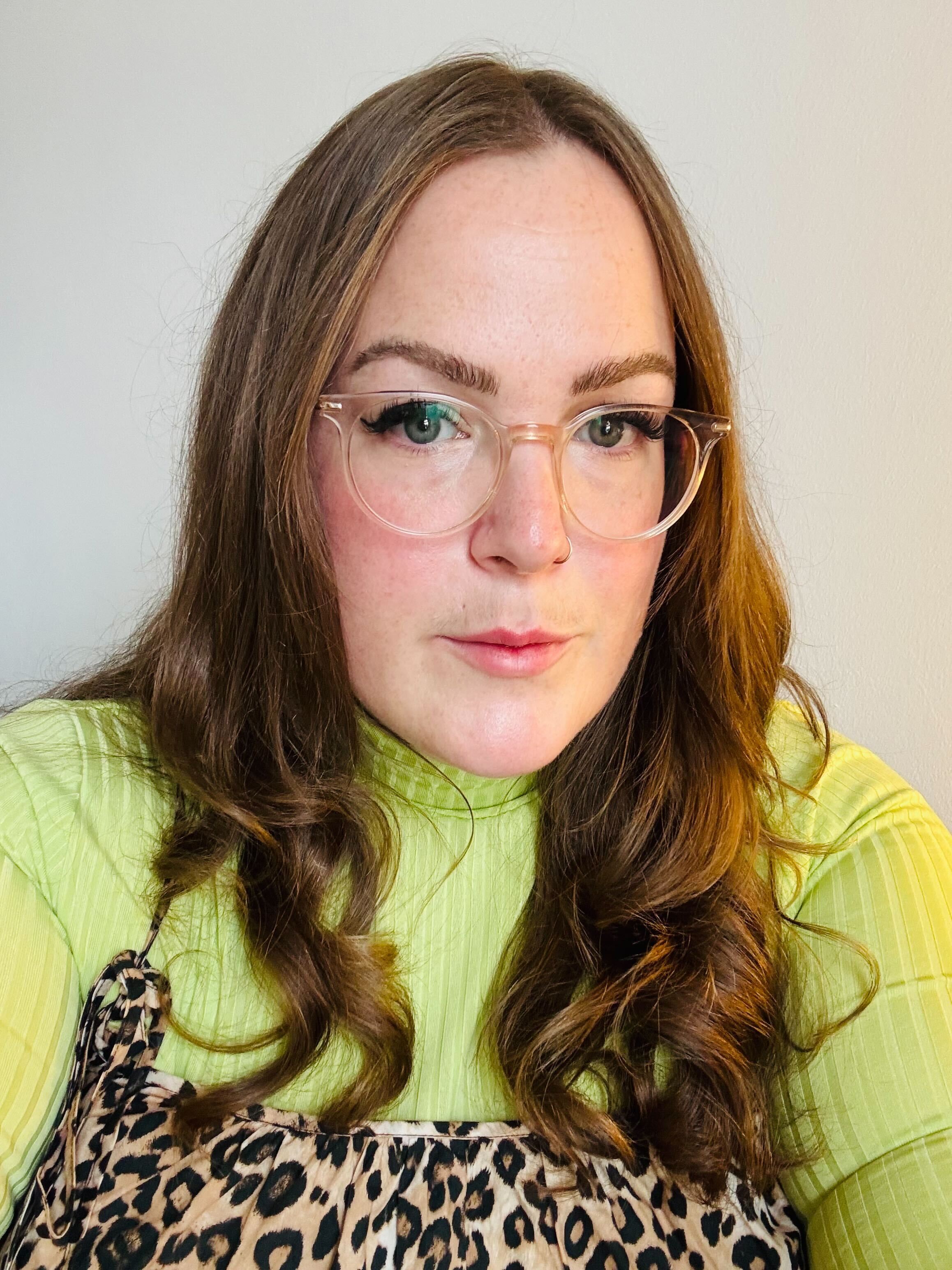You might think that being a quarter of one of rock’s best-loved bands would be hard enough work for most people, but not Troy Sanders. Despite Mastodon having spent the best part of 2016 touring, headlining stages at various summer festivals and working on a new album, Sanders has also managed to find the time to complete the long-awaited debut album from his “other” band, Gone Is Gone.
Joining forces with members of two of alt-rock’s most preeminent bands – Queens Of The Stone Age guitarist Troy Van Leeuwen and At The Drive-In drummer Tony Hajjar – it quickly became evident to those involved that what had started as a few friends mucking about with would-be movie soundtracks was evolving into something special. Combining story-telling atmospherics with Mastodon’s brooding ferocity, the results are as epic and riff-fuelled as any alt-metal fan could reasonably expect. Here, Sanders joins us to discuss the album, due in January 2017. Just don’t call them a supergroup…
So, how did Gone Is Gone come together?
“Over the years, Mastodon and Queens Of The Stone Age have shared many stages, and we’re all quite good friends. I kept in touch mostly with their guitar player, Troy Van Leeuwen. We’d always joked about starting a band, or opening a bar, or just shooting the shit over things to do because we both have the name Troy. But in 2002 he called me one afternoon and said that he had this project that he was invited into, and they were looking for a bass player and vocalist to try something new and different and he wanted my thoughts on if I’d be interested or not. Of course I said yes, I was interested, so he sent me some of the music, and I fell in love with it right away. The next day I flew to Los Angeles.”
And you were part of the band from that point?
“Well, Mike Zarin and Tony Hajjar [had been] collaborating on movie scores together. They invited Troy Van Leeuwen into the mix because he’s a very talented multi-instrumentalist. So the three of them were getting together and these bits of movie scores, and video game scores and movie trailers were turning into full rock songs. They wanted to exercise the idea of turning them into full songs, and that’s how I got brought into the mix. I went out there and I started laying vocals to some songs that they already had completed. They liked my ideas from a vocal standpoint, and the four of us befriended one another immediately, so the gig was mine.”
What drew you to become more involved in Gone Is Gone when you’re already part of a busy and successful band?
“See, none of us needed another band. Tony plays in At The Drive-In, and they’re very, very busy, Troy plays in Queens Of The Stone Age, and they’re one of the biggest bands on Earth, thankfully Mastodon keeps me very busy and very happy, so none of us needed this. We were all drawn to it, and the band was growing and growing very organically, because we all wanted to be there, we didn’t need to be there. The first six songs that became our EP that came out in July of this year, we just kept rolling and rolling [from there]. We had all these ideas together and we wrote another large batch of music that we were absolutely in love with, and we were like. ‘Wow, we kind of have a full-on band here’. It was great, we loved it, and there was no pressure. It was just four dudes who enjoy this particular band, and love what we do and do what we love.”
- Gone Is Gone release Sentient lyric video
- Gone Is Gone – Gone Is Gone album review
- The top 20 best supergroups
The band has been dubbed a supergroup. How do you feel about that title?
“I understand that if you have four marginally famous people, and you put them together, it’s a given that you’re already going to receive a certain level of attention, or perhaps a margin of success without even doing any of the work – I get that. But I also recognise that this band was formed because of the friendships that we’ve all created over years and years of touring. When you share stages, and you share festival backstage areas, and you cross paths over and over, you befriend one another, and those friendships sometimes last a long, long time. So when you’re doing another project, and you’re thinking of another musician, you’re gonna think about the people that you’ve crossed paths with in the past. I couldn’t imagine attempting to put a group together for the sole purpose of automatically achieving a certain level of fame or success. That is not, and never has been on my list of intentions. Ever. So I understand that there are a lot of supergroups, because these are people that appreciate and are inspired by other people that we’ve crossed paths with over and over. I understand it, but I can assure you that if anyone was really going to put together a supergroup for the sole intent of it being the true definition of a ‘supergroup’, it would just be people on a higher level of fame and fortune than myself and Tony and Troy Van Leeuwen. But I get it, and if people want to think it’s super, then that’s fantastic. We love it, and that’s really all that matters to us.”
Given that you’re already part of one very established band, how did it feel stepping into the studio with completely different people?
“I think you can gather [if it will work] right away when you share enough trust in each other. I had a lot of lyrical ideas and vocal patterns, and I said, ‘Hey, I want to try all this stuff out’, they were like, ‘Absolutely, please do’, because we all have a history of recording music. I think if those three guys did not like anything musically that I have ever done in the past, they wouldn’t have called me in the first place. So it’s a mutual respect and appreciation for another person and their art. If you have that instinct and that idea in your gut, it’s usually a good one – at least for your own ability. So, they let me run with it, and I had a lot of dark and bright, but serious and adventurous lyrics that I had written, and they were happy with all of it. And what later became what will be our full-length, to be released in January, was all four of us sitting in a room for three weeks, and we just wrote. You can’t force material – you either have it, and it comes out naturally, spontaneously, or it just doesn’t. The gates opened, and we had all these ideas, we all were happy with these ideas and inspired by them, and we just kept building on all these ideas and building and building, and three weeks later we had nearly an hour’s-worth of music that we were all in love with.”
So three weeks was all it took?
“Yeah, I had no idea that it would be like that, and neither did those guys. Some of the best bands in the world, and some of the best songwriters in the world, you can’t just sit down and say, ‘Okay, come up with something that you love’. Sometimes you just can’t, or don’t want to, or are not inspired to. So, we thought it was very, very unique, and again if we didn’t all really embrace it and feel moved by it, then we wouldn’t have chosen to continue.”
Gone Is Gone’s debut album Echolocation is out January 6, via Rise Records.

